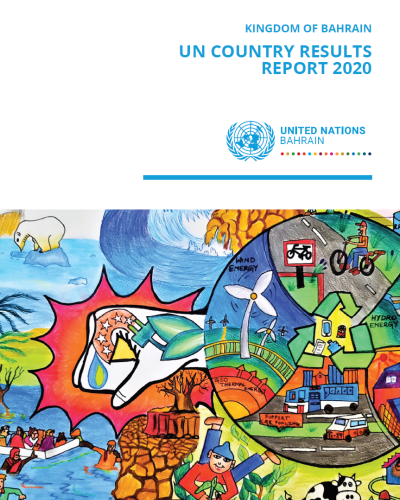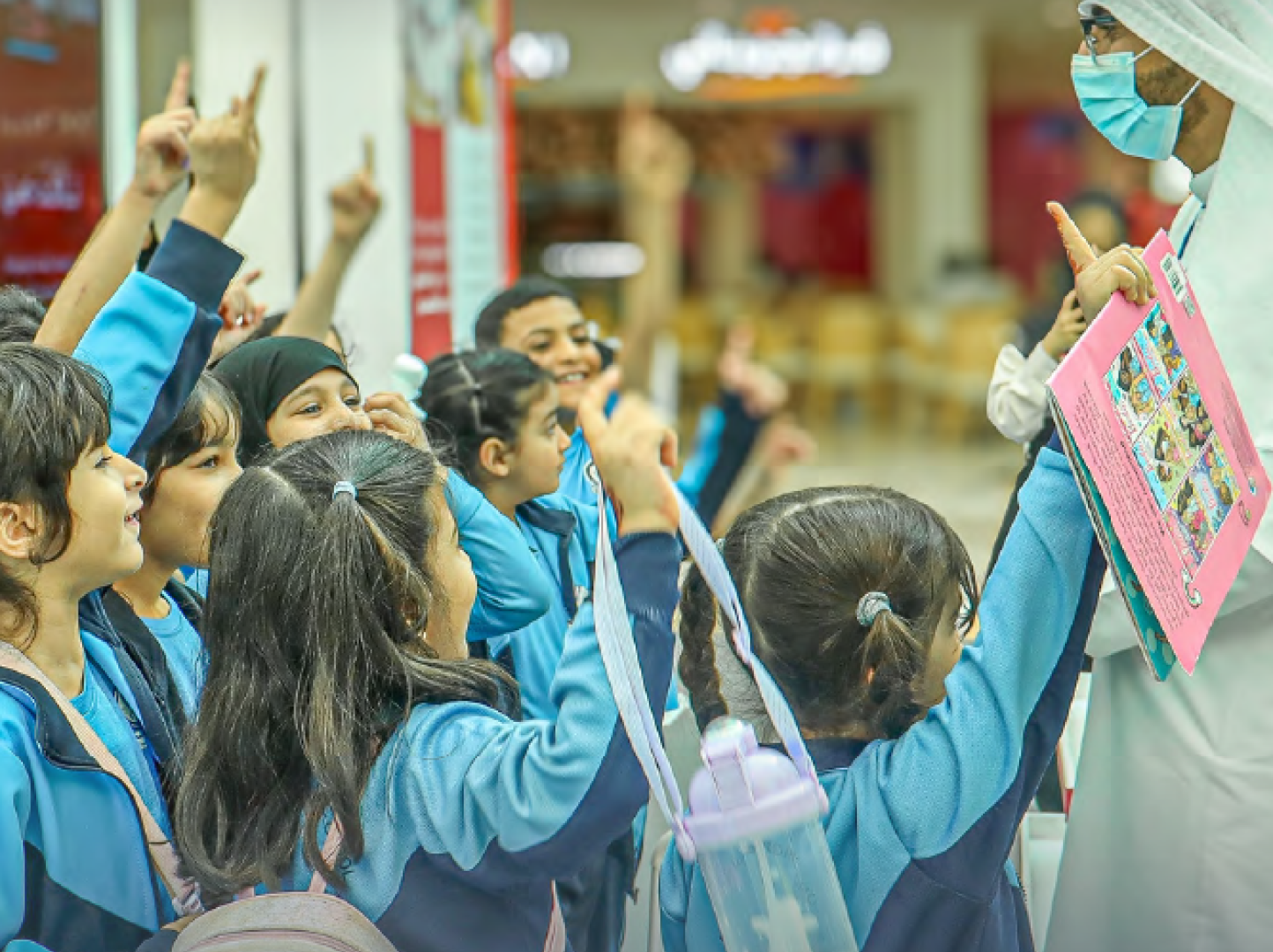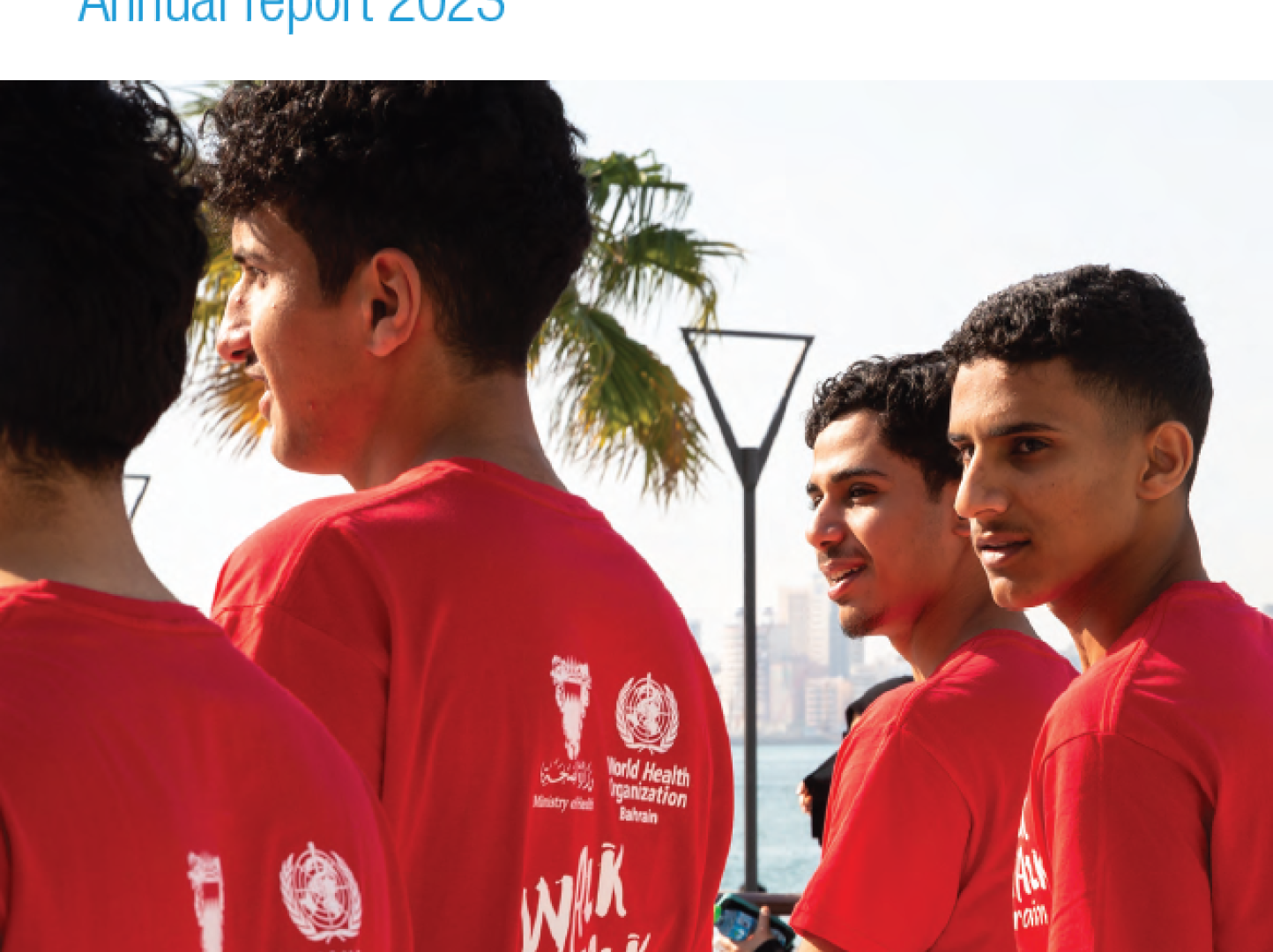United Nations Country Results Report for 2020

2020 was an extremely difficult year. What began as a health
crisis that cost millions of lives evolved into a full-blown socioeconomic
crisis that claimed millions more livelihoods around
the world. COVID-19 brought the world to its knees, exposing
and exacerbating existing vulnerabilities that will likely remain
for some time to come. Here in the Kingdom of Bahrain, there
have been more than 120,000 cases of COVID-19 and over 450
deaths registered since the first cases were reported in February
2020. On the economic front, growth in 2020 is estimated at ‑5.4
percent, and sectors such as travel and hospitality are some of
the hardest hit in the region. Such statistics, however, only tell
one side of the story.
Thanks to its early preparedness and close partnership with the
World Health Organization (WHO), the Ministry of Health and the
National Taskforce for Combating the Coronavirus were able to
mitigate the worst effects of COVID-19. Under the stewardship
of the Ministry of Finance and National Economy, crucial socioeconomic
measures and economic stimulus packages were put
in place to safeguard households and enterprises against the
impact of the pandemic. By the end of March 2021, early signs of
economic recovery are evident, and Bahrain has vaccinated over
500,000 citizens and residents, making it one of the global leaders
(per capita) in the COVID-19 vaccination rollout.
As this report outlines, the United Nations spared no effort to
rapidly reposition its support behind Bahrain’s response and
recovery efforts. While ensuring the WHO advisory and technical
assistance to the Government in meeting the challenges of the
health crisis head-on, the UN country team developed the Joint
United Nations COVID-19 Socio-Economic Response & Recovery
Framework, a whole-of-system initiative offering multidimensional
support services to respond to and recover from the impact of
the pandemic. Despite disruptions caused by COVID-19, progress
was made in several key areas related to the UN’s work on human
rights, labour and migration, public health, sustainable urban
development, the environment and food security, to name but
a few.
Across programmes and projects, the UN country team had
to adjust to a virtual world. Plans, proposals and frameworks
were revised to align with COVID-19 response and recovery
efforts. Working closely with the Ministry of Foreign Affairs and
key national counterparts, the UN developed the Strategic &
Sustainable Development Cooperation Framework, which outlines a
comprehensive statement of UN support for Bahrain’s emergent
development priorities.
In Bahrain, as elsewhere, the impact of COVID-19 will be felt for
years to come. But there is light at the end of the tunnel. 2020
marked the 75th anniversary of the United Nations, sparking a
global conversation on the role of multilateral cooperation in
building the future we want. Amidst the greatest global health
crisis the UN has seen in its 75-year history, here in Bahrain
the UN75 campaign demonstrated clearly the key role that the
UN has to play, not only in responding to crisis situations, but
in working with Governments and partners around the world to
Build Back Better.
As we turn our attention to 2021, and focus our collective
efforts on the promise to Leave No One Behind, on behalf of
the entire UNCT, I want to express our deep appreciation to the
Government of Bahrain and to our invaluable partners across the
country, without whom the work of the UN would not have such
a meaningful impact.




















